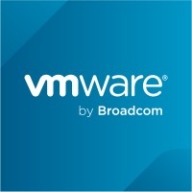

Azure Site Recovery and VMware Live Recovery are competitors in the business continuity solutions category. Azure Site Recovery seems to have the upper hand due to its seamless integration with Azure services, whereas VMware Live Recovery excels in automation and integration with VMware environments.
Features: Azure Site Recovery is noted for its seamless failover, synchronization, and scalability. It integrates well with Azure services, providing cost-saving potential, and boasts ease of use for existing Azure users. VMware Live Recovery is strong in automation, zero RPO and RTO options, and comprehensive disaster recovery tools. It integrates well with VMware environments but may face challenges with non-VMware setups.
Room for Improvement: Azure Site Recovery users have suggested improvements in replication consistency, error logging, and pricing flexibility. Integration with non-Azure services has also been noted as a challenge. VMware Live Recovery could enhance its user interface, synchronization with non-VMware environments, and pricing structure.
Ease of Deployment and Customer Service: Azure Site Recovery is praised for its flexibility in public and hybrid cloud deployments, with mixed reviews on Microsoft support effectiveness. VMware Live Recovery offers strong integration with VMware environments but faces complexity in technical support and customer service experiences.
Pricing and ROI: Azure Site Recovery offers flexible pricing benefiting from cost savings in reducing physical DR site infrastructure, providing good ROI. VMware Live Recovery, despite being perceived as expensive, offers significant ROI through its comprehensive recovery solutions. Azure’s pricing is more transparent, while VMware’s is considered high but justified by its robust capabilities.
Azure Site Recovery, while being pricier than some providers, has a sufficient service level to justify costs.
Azure Site Recovery is time-saving, and its features allow us to automate processes and save resources.
During a global outage that affected our operations, there was no apology or in-depth follow-up from Microsoft.
Microsoft support could be improved as it rates only a five out of ten, with slow response times and a preference for email over phone communication even in severity B cases.
We primarily rely on our Cloud Support Partner for support.
They are knowledgeable.
Our team has dedicated personnel for support who engage with the supporting teams.
The technical support from VMware is very good and operates based on a service level.
I would rate the scalability of Azure Site Recovery as a nine out of ten.
Scalability is provided because they are offering 99.95% availability.
Azure Site Recovery is a very scalable product and service mechanism.
The system did go down a couple of times, which impacted our operations.
I would rate the stability of Azure Site Recovery at eight to nine out of ten.
For our test labs, dev labs, and production, it is very stable.
If their agent version is mismatched and the health status is critical, you will not be able to perform your Azure Site Recovery.
There is room for improvement in the release of patches, such as ensuring they are properly managed to avoid outages.
Currently, Azure Site Recovery does not support shared disk options.
It's important for the cost to be justified based on the features used in production.
I would like to see improved integration services with other solutions, such as SIEM management or security monitoring.
They follow their SOP, but they initially engage very low-level personnel who are not able to answer or resolve the issue, so they escalate or take a very long time to resolve the issue.
It was not the expensive part of our costs.
A major advantage is that you do not want to pay any more for huge costs to build a DR site.
The pricing of Azure Site Recovery is around a four out of ten, being somewhat cost-effective.
Previously, when acquiring a license for Ethiopian drug supply chains, the price was significantly high, especially after Broadcom joined VMware.
For cloud-based solutions, the cost seems quite pricey, so we stick to on-premises deployment.
We mostly prefer to recommend this to customers due to ease of use, abundant features, and support.
Its time-saving aspects allow us to write PowerShell scripts to automate failover processes.
Azure provides a 99.99% SLA for their uptime, ensuring that even during outages due to patch releases, there is no data loss, merely hindered accessibility.
The most valuable features of Azure Site Recovery are its ease of use and speed of recovery.
It is used for data replication between data centers and allows for quick response in times of failure, ensuring data availability.
If I talk about vCenter and the auto failover of the VMs, such as live migration, that is a very cool feature that we require in our environment because we have different data centers, and if some of the servers fail, they automatically failover and move the VM from one side to another.
The capability and the functionality of the features are very helpful for us.
| Product | Market Share (%) |
|---|---|
| VMware Live Recovery | 16.3% |
| Azure Site Recovery | 21.5% |
| Other | 62.2% |


| Company Size | Count |
|---|---|
| Small Business | 8 |
| Midsize Enterprise | 4 |
| Large Enterprise | 14 |
| Company Size | Count |
|---|---|
| Small Business | 36 |
| Midsize Enterprise | 13 |
| Large Enterprise | 39 |
Help your business to keep doing business - even during major IT outages. Azure Site Recovery offers ease of deployment, cost effectiveness, and dependability. Deploy replication, failover, and recovery processes through Site Recovery to help keep your applications running during planned and unplanned outages. Site Recovery is a native disaster recovery as a service (DRaaS), and Microsoft been recognized as a leader in DRaaS based on completeness of vision and ability to execute by Gartner in the 2018 Magic Quadrant for Disaster Recovery as a Service.
We monitor all Disaster Recovery as a Service reviews to prevent fraudulent reviews and keep review quality high. We do not post reviews by company employees or direct competitors. We validate each review for authenticity via cross-reference with LinkedIn, and personal follow-up with the reviewer when necessary.